Bisher keine Ankündigungen vorhanden.
www.discuss-community.eu/community-en/groups/viewg…
Dear all,
me and some colleagues just founded a new group on participatory methods in adult education. You are warmely invited to join the group, and share your experience with us. Just follow the link. Here's some background information on our project:
Groups with a disadvantaged background or those remote from learning often have great difficulties to take ownership of their learning, without being empowered. Although a great deal of rhetoric about learner empowerment, adult education practice too often remains caught in traditional instruction methods, fixed curricula and pre-defined learning outcomes. It's in particular low achievers who suffer from this situation, because in the formal education system they often have made the experience that major parameters of their learning is out of their control, and thus never had the chance to develop a sense of ownership for their own learning.
We start from the assumption that the...www.discuss-community.eu/community-en/groups/viewg…
Dear all,
me and some colleagues just founded a new group on participatory methods in adult education. You are warmely invited to join the group, and share your experience with us. Just follow the link. Here's some background information on our project:
Groups with a disadvantaged background or those remote from learning often have great difficulties to take ownership of their learning, without being empowered. Although a great deal of rhetoric about learner empowerment, adult education practice too often remains caught in traditional instruction methods, fixed curricula and pre-defined learning outcomes. It's in particular low achievers who suffer from this situation, because in the formal education system they often have made the experience that major parameters of their learning is out of their control, and thus never had the chance to develop a sense of ownership for their own learning.
We start from the assumption that the impact on disadvantaged target groups can be greatly increased if education providers manage to adopt participatory approaches and methods, and this way support their learners to develop a sense of ownership of their learning and to become lifelong learners. That's why we promote participatory methods in adult education and, more specifically aim at building a model for participatory design of learning outcomes.
Mehr anzeigen
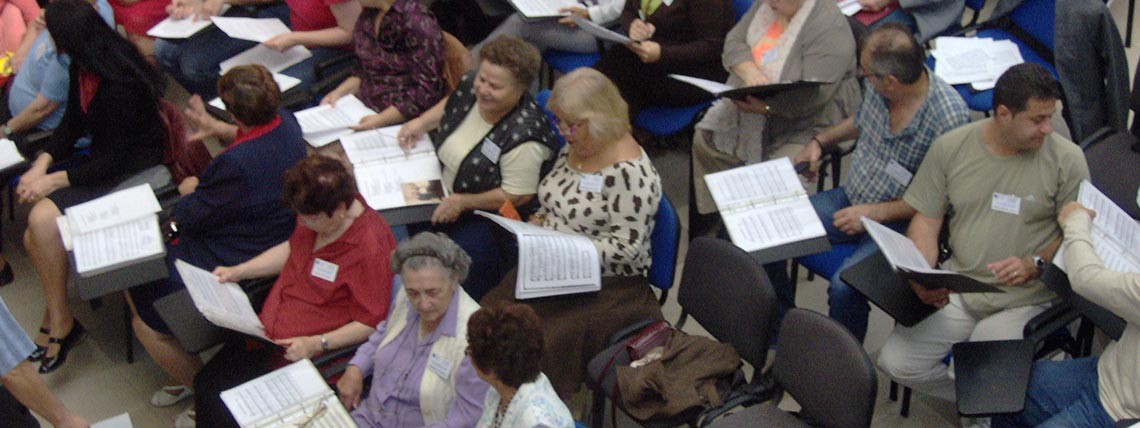
Promoting social and economic cohesion through advanced...
Adult learning not only provides citizens with new skills and competences, but also helps to achieve social cohesion and to respond to the challenges that globalisation brings.
The German Institute for Adult Education is organising a European conference in Bonn on 25 September 2018. The conference is titled "Course planning and course evaluation - two unjustly neglected key competences for teachers and trainers in adult education". It is organised in the framework of the project DEMAL.
The conference addresses two professional tasks of adult teachers which tend to attract less attention than the “actual teaching”. However, planning and evaluation of adult learning activities are of equal importance for the quality and the success of these activities.
At the conference new European approaches to define and develop these two key competences will be presented and further development needs will be discussed. Besides a general introduction to the topic, three aspects will be explored in greater depth in parallel workshops:
- digital media as a tool for developing professional competences
- the role of competence standards and validation frameworks
- the...The German Institute for Adult Education is organising a European conference in Bonn on 25 September 2018. The conference is titled "Course planning and course evaluation - two unjustly neglected key competences for teachers and trainers in adult education". It is organised in the framework of the project DEMAL.
The conference addresses two professional tasks of adult teachers which tend to attract less attention than the “actual teaching”. However, planning and evaluation of adult learning activities are of equal importance for the quality and the success of these activities.
At the conference new European approaches to define and develop these two key competences will be presented and further development needs will be discussed. Besides a general introduction to the topic, three aspects will be explored in greater depth in parallel workshops:
- digital media as a tool for developing professional competences
- the role of competence standards and validation frameworks
- the potential of European training courses
The conference targets practitioners and researchers in the field of adult learning and education.
No conference fees will be charged. Travel grants are available to a limited number of participants from Europe. If you are interested, please contact the organisers.
Mehr anzeigen






The German National Agency Education for Europe is looking for speakers for a conference on October 4th-5th in Potsdam/Germany. The speakers shall present different scenarios for the future of Europe (based on the NECE video “Europe 2030”) and discuss the potential implications for citizenship education in the adult- and vocational education sector.
The conference in Berlin brings together up to 500 Erasmus + beneficiaries as well as stakeholders from adult education and vocational education and training. The participants will discuss the frame topic “the future of education – education in the future” in five workshops (max 100 pax per workshop). One of the workshops will be dedicated to citizenship education, which is one of the priorities of the Erasmus+ programme.
Speakers are expected to present different scenarios for the future of Europe; discuss potential implications for citizenship education with the audience; publish a blog post on the E-Platform for Adult Learning in...The German National Agency Education for Europe is looking for speakers for a conference on October 4th-5th in Potsdam/Germany. The speakers shall present different scenarios for the future of Europe (based on the NECE video “Europe 2030”) and discuss the potential implications for citizenship education in the adult- and vocational education sector.
The conference in Berlin brings together up to 500 Erasmus + beneficiaries as well as stakeholders from adult education and vocational education and training. The participants will discuss the frame topic “the future of education – education in the future” in five workshops (max 100 pax per workshop). One of the workshops will be dedicated to citizenship education, which is one of the priorities of the Erasmus+ programme.
Speakers are expected to present different scenarios for the future of Europe; discuss potential implications for citizenship education with the audience; publish a blog post on the E-Platform for Adult Learning in Europe (EPALE) beforehand.
Speakers’ travel and accommodation costs will be covered by the Germany National Agency
Contact:
Christina Norwig: Norwig@bibb.de
Torsten Schneider: Torsten.Schneider@bibb.de
Mehr anzeigen
vimeo.com/album/4012888
The Finnish Lifelong Learning Foundation with support of the Erasmus+ programme just released a quite exciting video series. Learners and educators in the videos tell their personal stories, on how they found their way to lifelong learning and the bridges they had to cross. Really worth a visit.
socialtheoryapplied.com/journal/jast/index
Mark Murphy and Cristina Costa, both founders of "Social Theory Applied" just launched twin site "Journal of applied Social Theory".
The Journal of Applied Social Theory aims to provide an intellectual space where critical applications of social theory (in all its varied forms) can flourish.
The objective in setting up this new open-access journal is to fill a gap in current academic debates regarding the treatment of well-established and sometimes revered theories, theories that can all too often inhibit discussion while shying away from more applied forms of theoretical work.
The Editorial Board invites submissions from across the social sciences, humanities and related applied areas, including psychology, sociology, social care, social policy, urban studies, education, criminology, geography, literature and media studies.
www.youtube.com/watch
On 3 June 2016, the Kölcsey Congress Centre in Debrecen hosted a Citizens' Dialogue with Commissioner Tibor Navracsics. The discussion with about 300 participants focussed on key issues around education and culture, such as what skills young people need to find jobs and to integrate in society, how the EU can help, the role of culture in creating a European identity and fostering social cohesion, and the relevance of culture in making Europe a stronger global actor.
www.academia.edu/26061334/One_size_does_not_fit_al…
Just found this interesting article an academia:
One size does not fit all! New perspectives on the university in the social knowledge economy
Universities face a tension from two urgent pressures they face, firstly to demonstrate that they deliver value for society in return for public investments, and secondly to demonstrate their responsibility by introducing strategic management to demonstrate to their funders that they meet their goals.
In this special issue, we explore the ways in which these tensions play out in practice, as universities facing ‘mission overload’ in turn try to develop additional regional development missions, highlighting three findings. Firstly, there can be no one-size-fits all idea of a ‘third univer-sity mission’ alongside teaching and research because engagement is so context-dependent. Secondly, universities and regions need much better understand their own contexts to improve their performance rather than...www.academia.edu/26061334/One_size_does_not_fit_al…
Just found this interesting article an academia:
One size does not fit all! New perspectives on the university in the social knowledge economy
Universities face a tension from two urgent pressures they face, firstly to demonstrate that they deliver value for society in return for public investments, and secondly to demonstrate their responsibility by introducing strategic management to demonstrate to their funders that they meet their goals.
In this special issue, we explore the ways in which these tensions play out in practice, as universities facing ‘mission overload’ in turn try to develop additional regional development missions, highlighting three findings. Firstly, there can be no one-size-fits all idea of a ‘third univer-sity mission’ alongside teaching and research because engagement is so context-dependent. Secondly, universities and regions need much better understand their own contexts to improve their performance rather than seeking simplistic best-practice third mission instruments elsewhere. Finally, higher education ministries should recognise that diversity in higher education is critical to delivering societal benefits, and uncritically believing in the power of world class universities.
Paul Benneworth, Romulo Pinheiro and Mabel Sanchez-Barrioluengo
Science and Public Policy Advance Access published June 5, 2016
This article is also available from our library:
www.discuss-community.eu/library/all-documents/lea…
Mehr anzeigen
www.elmmagazine.eu/articles/annette-sprung
Migrants run the risk of exclusion and turning into the “Other” in their new societies, also in adult education. For migration researcher Annette Sprung, research can prevent this through uncovering false categories and bias towards refugees.


www.discuss-community.eu/promoting-social-economic…
The Erasmus+ project ON THE MOVE just released a best-practice-guide on how to outreach to and include vulnerable groups in the world of lifelong learning. The guide presents 32 best practice examples identified during a review of over 100 European projects.
cradall.org/content/unesco-chair-resources-video-g…
This new unique resource guide provides a summary of videos on key topic areas related to teaching and training materials for Community Based Research from around the world (source: CRADALL newsletter of today)
We are approaching this issue though financial literacy: the EfinLit project:
In the current times of economic turbulence and market shortcoming, where the majority of EU citizens are struggling to manage the financial challenges they face, a real life need for the development of their financial literacy competencies has been identified. eFinLit project (Developing Financial Competencies for EU Citizens Utilizing Online Learning and Digital Literacy) aims to promote directly and indirectly the digital numeracy, language, reading, collaboration and communication skills of financial disadvantaged young EU adults (18-35).
www.efinlit.eu/index.php/en/
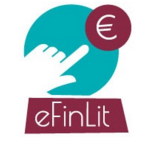
www.discuss-community.eu/promoting-social-economic…
Randolph vor 8 Jahren


Maybe it is that religion is stronger than education for these people and it goes back to early conditioning. At the same time there is a strong sense of resentment at the bombing of muslims by so-called infidels. I wish that there was an answer to this, but I doubt that it is more bombing. John Pilger in a recent blog pointed out that, in the early days of the Khmer Rouge in Cambodia, America carpet bombed Cambodian villages to eliminate them. At that there was not more than 17000 Khmer Rouge guerrillas - this became millions after the bombing with disastrous effects - the killing fields. Maybe the same thing is happening here.
Just added MMS project to the project section. The project is developing tools to assist migrants and minority communities to be part of the society and community in which they are living. Its aim is to provide a practical approach to addressing the reality within migrant and minority communities of being at the margins of society. www.discuss-community.eu/promoting-social-economic…
I recommend this webinar to those working on projects which are concerned with social innovation. It has been produced by the Emergence by Design (MD) project, which is funded by the EC 7th Framework Programme. The project aims at supporting promoters for social change by developing a community around new theory, practices and tools. www.youtube.com/watch The vision of Emergence by Design is to develop an international community around new theory, practices and tools able to construct a socially sustainable future. This international community, founded on existing social innovation groups, will collectively develop these new practices and tools on the basis of a shared theoretical understanding of how to drive and support social change. One of the output of the project is to create a set of ICT tools tailored to the so-called Dynamic Evaluation, a system for mapping, monitoring and assessing events that provides “real time feedbacks” to innovation projects’...
Evaluating social innovation
What is social innovation, and how can it be evaluated?
Promoting social and economic cohesion through advanced adult education opportunities
Promoting social and economic cohesion through advanced...
Adult learning not only provides citizens with new skills and competences, but also helps to achieve social cohesion and to respond to the challenges that globalisation brings.
A great opportunity is the school community and all child-centered activities (sports, art etc), that brings together parents. The school, the parents' association and the municipal structures can have a great influence in developing bonds between migrant and local families.
-
Adult learning not only provides citizens with new skills and competences, but also helps to achieve social cohesion and to respond to the challenges that globalisation brings.
-
Kategorie
Promoting social and economic cohesion through advanced adult education opportunities -
Erstellt
Donnerstag, 04. September 2014 -
Gruppen-Admin
Michael, Admin, Brian Dillon
Neue Artikel
- SIEMdig “Social Inclusion and Emotional Maturity of the Society's youngest participants helped by digitally competent teachers”
- SwitchOff - Supporting worker's well being during remote work
- HEART - Help educators to teach through robotic tools
- WOWIT – Women on labour market with inclusive techniques
- Sustainability Skills in Adult Education | The 5P Competence Framework


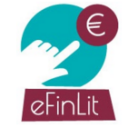
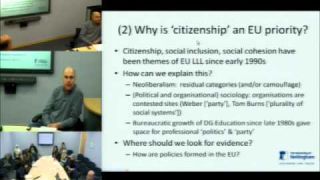
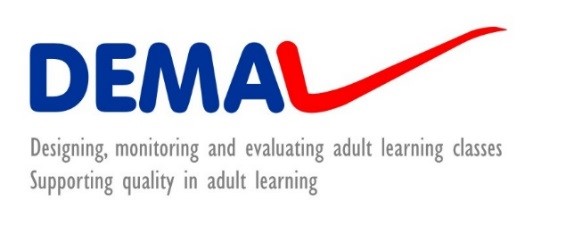





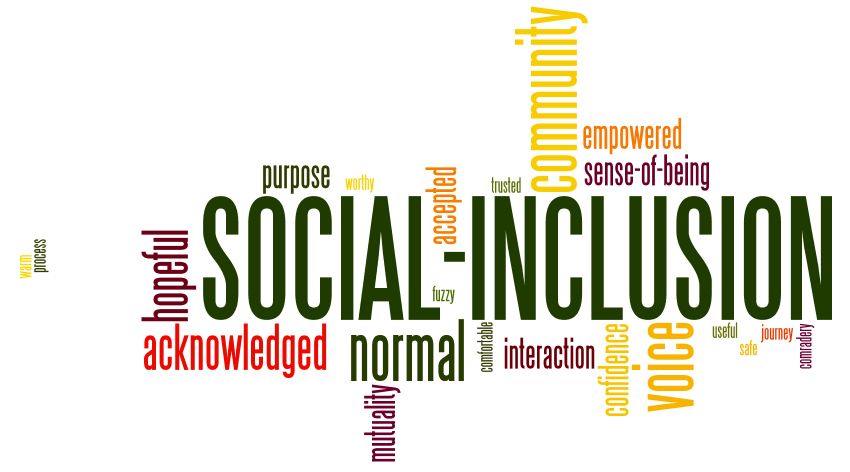








PRIA International Academy is offering a 6-Week online course which will facilitate your understanding of:
Participatory Monitoring & Evaluation
Project Cycle Management
Theory of Change
Outcome Mapping
Challenges and solutions in application
So, what are you waiting for?
www.pria.org/courses-details.php
Measuring Development: Participatory Monitoring, Evaluation and Impact Assessment
How can we measure development? Recent years have witnessed concerns regarding effective management and results oriented approach to development projects and programmes. The discourse has…